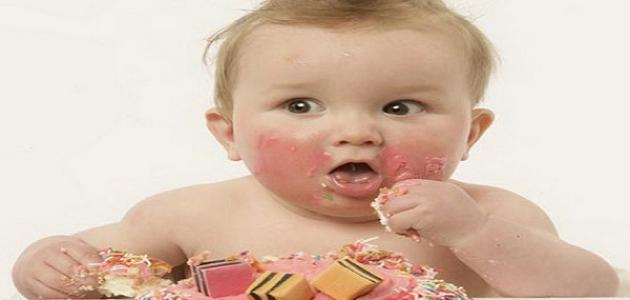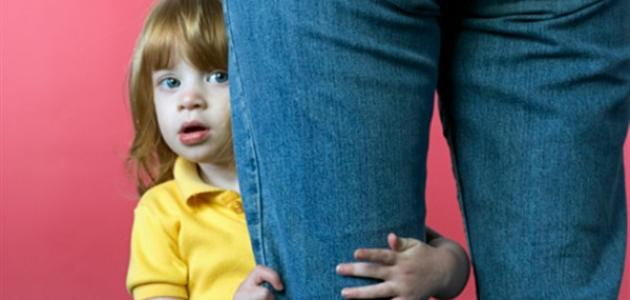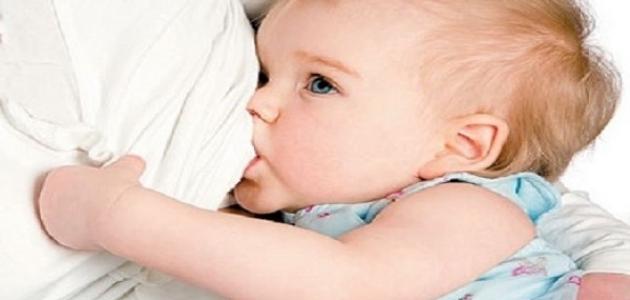Contents
Baby colic
The term colic children on the crying baby baby good nutrition for more than three hours a day, and more than three days a week, and more than three weeks. It is worth mentioning that colic usually begins two weeks after the birth of the child and disappears on its own when it was completed the third or fourth month of age, and notes spread between male and female children alike and has nothing to do with the milk type received by the child , whether milk naturally or artificially . [1] It is noted that childrenMothers who smoke during pregnancy or after childbirth are more likely to suffer from colic, it should be noted that the diet of a mother who is breastfeeding her child does not increase nor reduce the incidence of colic as it is on the tongues of many people, and colic does not affect the development or growth of the child Normally. [2]
Treating colic in children
Treatment with medications and supplements
There is no proven treatment that helps all children get rid of colic, but there are some medications that have been tried to get rid of it, and these drugs include the following: [3]
- Drugs to eliminate gas : relieve symptoms of colic, but not significantly, and the use of these medicines is safe in most children, except for children who are taking medicines to treat thyroid disorders.
- Probiotics: It is a bacterium that helps maintain the natural balance of beneficial bacteria in the digestive system , and it is used in cases of colic in children due to the belief that there are disturbances in the balance of beneficial bacteria when the child suffers from colic, but there is not enough scientific evidence to support its effectiveness in Such cases.
Alternative medicine
Some parents use some alternative treatments to control colic in children, but the effectiveness of these treatments has not been proven, and some of them may be dangerous, and among these treatments are the following: [3]
- Herbal teas and herbal remedies, such as fennel oil , and the problem with using herbal teas and herbal remedies is that they are not subject to the same laws that regulate the manufacture of medicines and thus may be contaminated.
- Water and sugar.
- Massage therapy.
- Chiropractic manipulation.
- Acupuncture.
General tips for dealing with colic in children
The child can be calmed down and crying because of his suffering from colic, by following some advice, including the following: [3] [4]
- Hold the baby as straight as possible during feeding, and in the event of breastfeeding, it is preferable to breastfeed the child from one breast until it is almost empty before switching sides.
- Switching formula: Formula is not considered a possible cause of infantile colic, but if the child suffers from an allergy or intolerance to cow's milk, changing the type of milk to a special type helps reduce the symptoms of colic, and within two days of changing the type of milk The mother may notice an improvement in symptoms, otherwise the previous quality of milk can be returned.
- Changing breastfeeding: Changing bottles and nipples may help relieve some of the symptoms of colic by choosing a quality that reduces the amount of air that reaches the baby's stomach during feeding.
- Gently massage the baby.
- Make some noise: Babies love the sounds that remind them of the sound of the mother's heartbeat and other sounds that they used to hear in the womb during pregnancy, so it may be useful to place the child in his own seat near the washing machine while the mother is washing, and the child may calm down when the vacuum cleaner is on.
- Maintaining calm: Some children feel comfortable with movement, noise, and activity, but others respond better to calm, stillness, and darkness.
- Moving the baby: Gentle movement can be a calming factor for the baby's crying, examples of this include placing him in a bouncing bed, or a swing, or carrying him close to the mother's chest so that he hears her heartbeat, in addition to gently moving it up and down.
- Using a pacifier or a soother: The sucking process is soothing for many babies, and therefore using a pacifier relieves the baby's crying.
- Use a warm bath and gently rub the baby's belly.
- Going out with the baby for a walk.
- Embrace the child.
- Swaddling : Wrap the baby comfortably in a blanket or piece, which helps the baby to sleep.
- Use a warm water bottle, wrap it in a towel, and place it on the child's stomach, which gives him a feeling of pleasure and comfort.
Causes of colic in children
The exact cause of colic is unknown, but there are some theories that may explain colic in children, including the following: [1]
- The growth of the digestive system, including the muscles responsible for digestion, and the accompanying spasms.
- Gases.
- A change in hormones that cause stomach pain or a change in mood.
- Hypersensitivity to light and noise.
- Development of the nervous system.
Reasons for the baby to cry
Colic may cause a baby to cry, but there are other reasons that may cause him to cry as well. Such as suffering from infection (Infection), or acid reflux , or other stomach problems, or infection in the brain and nervous system, or eye problems, or irregular heartbeat , or bone injury, or Muscles, or fingers being damaged. [1] There are unsatisfactory reasons that may cause the child to cry as well, including the following: [5]
- Hunger: Some children show signs that may indicate their need for food, such as irritable mood, putting their hands on their mouths, and sucking on their lips.
- The need to burp.
- The child's need to change the diaper.
- The need to sleep.
- Child feeling cold or hot.
- Teething: The appearance of teeth usually begins between the ages of 4 to 7 months, and teeth may appear earlier.
References
- ^ A b v "Could Your Baby's Crying Be Colic ?" , www.webmd.com , Retrieved 26-12-2017. Edited.
- ↑ "Colic" , www.mayoclinic.org , Retrieved 26-12-2017. Edited.
- ^ A b t "Colic" , Www.mayoclinic.org , Retrieved 26-12-2017. Edited.
- ↑ "Colic: How to cope" , www.babycenter.com , Retrieved December 26 , 2017 . Edited.
- ↑ "12 reasons babies cry and how to soothe them" , www.babycenter.com . Retrieved 26-12-2017. Edited.














